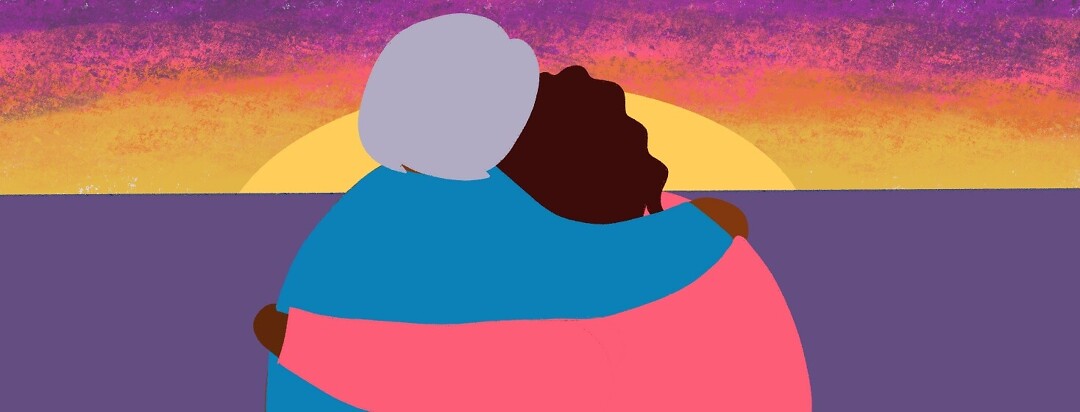People Are Not Burdens
I don’t remember where the worry came from, but when I reached my teen years with juvenile rheumatoid arthritis - now known as juvenile idiopathic arthritis (JIA) - I started to worry that I was a burden to others.
I worried I was a burden to others
I think this seeped into my mind from outside, from little comments from strangers and people around me noting how my family supported me, how our lives adjusted to my illness and disability.
Other young people didn’t need a wheelchair or need help walking up steps. Other young people didn’t have pain, fatigue, and joint deformities. Other young people didn’t seem to need help with much of anything, compared to me.
I not only felt the emotional weight of my difference but feared I was weighing other people down — especially my family.
The myth of total independence
In our society, we are taught to be rugged individualists. We are told that doing things on our own is superior and ideal. We have a creation myth that we tamed our land and made it our own. But, it is false.
Not only were other peoples here in this land who had much better knowledge of it and how to live with it, but people worked together in groups to farm, make towns, build cities, and so forth. No one succeeds purely on their own.
No one succeeds purely on their own
And so, I eventually realized that I am not a burden. No one is. We all bring something to the table if we are invited to contribute.
Over the years I’ve heard things said about “not wanting to be a burden when I am in old age” and how various disabilities mean that life is no longer worth living because one becomes a burden on others.
I want to say clearly: people are not burdens.
We all need help sometime
At some point, everyone needs help. It can be permanent or temporary, but we all have a time when there’s something we cannot do and need assistance. It’s not asking for help that is the problem—the question is if the help is available.
In our home, my husband Richard helps me with daily tasks and I help him in other ways. He depends on me for:
- providing IT support: managing our cable, Internet, and streaming
- organizing the calendar
- making orders for groceries and other things we need in our house
And I depend on him to cook, clean, and care for our garden. We both bring skills to the table. And as we age or acquire health changes, these things may change. We may need different kinds of help.
Needing more help as we age
I know as my rheumatoid arthritis and disabilities age that I may need more physical assistance. I may need a more accessible home. But, this doesn’t make me a burden. It makes me human.
The universal goal of humanity is to age. With aging comes increasing needs for help. Some of us just start needing help earlier than others.
I want to delete the burden concept from humanity. I want us to realize we all need help sometimes, and that it’s okay. I like helping people when I can (such as ordering groceries for our 87-year-old neighbor). And I know others like helping me. It feels good to help someone.
And, if we all help a little and (as a society) make help easier to find, then we can feel more secure as we age and acquire health conditions.
Fear of being a burden is internalized ableism
We need to debunk the myth of being a burden because this fear actually prevents people from getting the help that they need.
It keeps older adults from simple modifications to make their homes more accessible (like a bath seat or raised toilet). It keeps us confined to dangerous conditions when simply asking for a little help would keep us from falling, injuring ourselves, or worse.
Not asking for help causes harm
I don’t have any pride in asking for help, but I witness all the time the harm that comes to other people who are afraid to ask. They exhaust and hurt themselves when someone helping would be so much easier. I’ve seen the harm caused by the fear of being a “burden.”
It is true that it is much better if we plan for the inevitability of older age and disability. If we plan and get help, then we can thrive no matter the physical or health challenges thrown at us. If we throw away the myth of being a burden, we are helping ourselves and each other to a brighter future.

Join the conversation